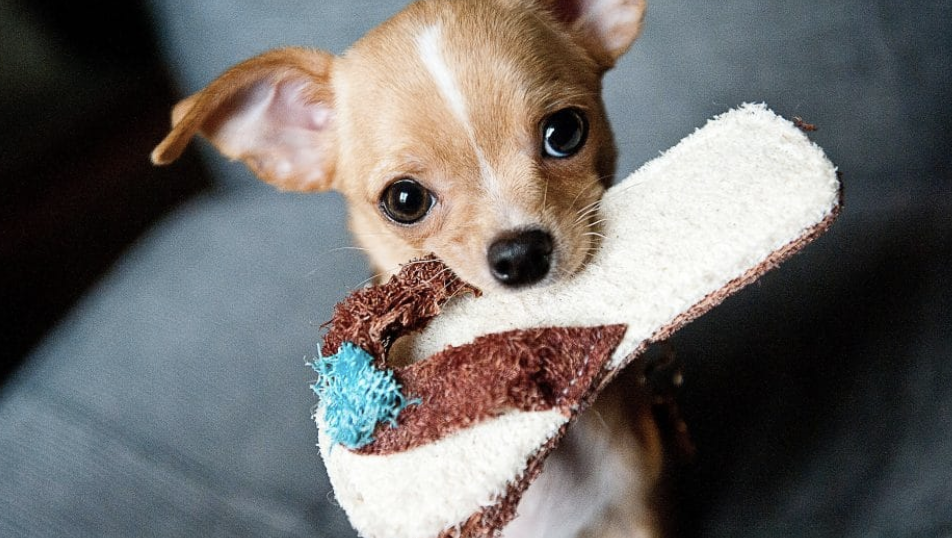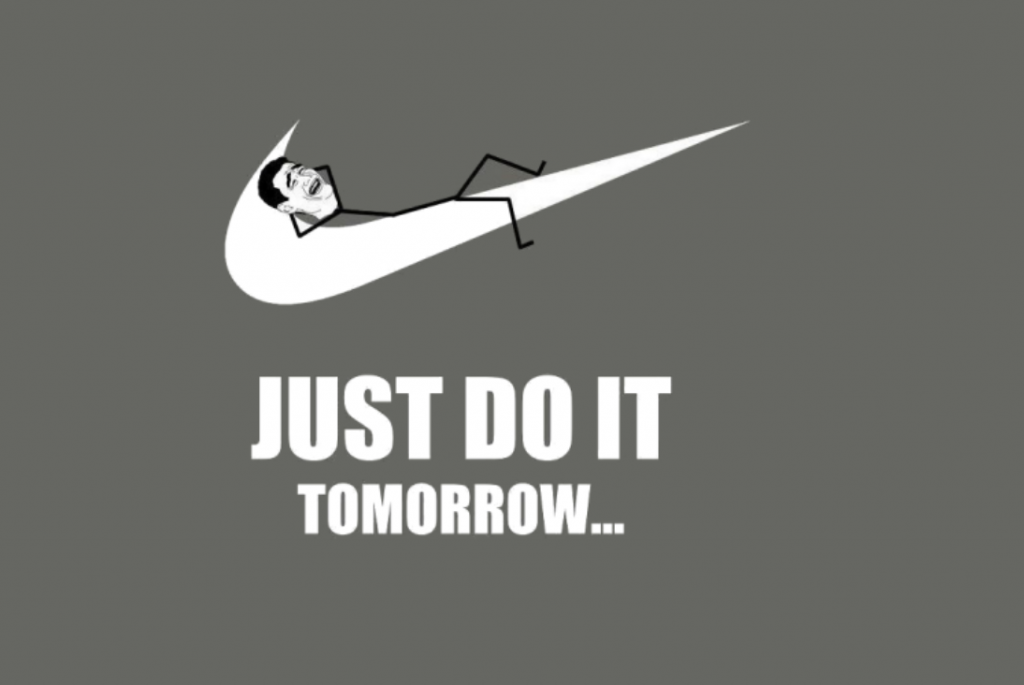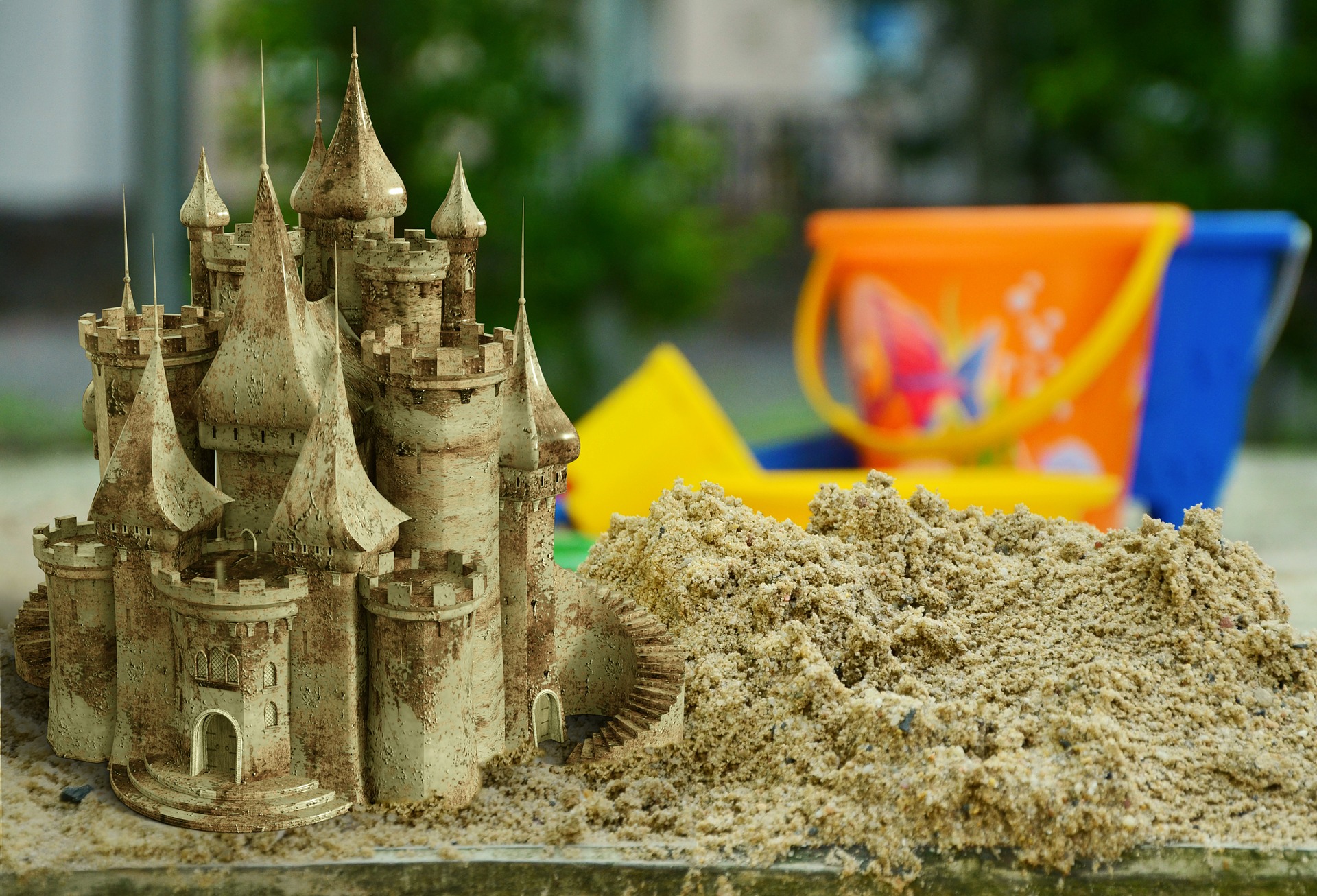So you’re inspired to start your new creative project. You’ve got all the funny characters in your head in order, thus clearing your mental clutter of confusion, self-doubt and fear.
You’ve got a solid plan…
Your heart’s on fire…
So let’s do this…
Except, just one more Youtube video…
No, no…
You’re excited…
Let’s do this…
But you need to add your two cents to this twitter argument going on…
Two weeks later, you discover, “Everybody has a plan until they get punched in the mouth.”
What really goes wrong here?
Enter the Procrastination Chihuahua (introduced in the previous post)

https://www.rover.com/blog/best-chihuahua-names/
Despite procrastination chihuahua’s size, it’s the fiercest and most effective in derailing your plans. It also has a single goal in life: to advance the mission of this modified Nike slogan.

https://www.scienceabc.com/humans/shocking-origin-procrastination-biological-point-view.html
Just as with all relationships, you have to be empathetic and understand this Chihuahua.
What Happens In Your Brain When You Procrastinate?
Procrastination as a process can be viewed as a battle between the limbic system, which is responsible for your emotions, and the prefrontal cortex responsible for planning and decision making.
In this piece of interesting research, the authors showed that procrastinators had a larger amygdala (part of the limbic system) and poorer connections between the amygdala and a part of the brain called the dorsal anterior cingulate cortex (that uses information channeled from the amygdala to decide what action will be taken).
Larger amygdala individuals tend to be more anxious about the negative consequences of that action, and because of the poor connections between the amygdala and the DACC results in the insufficient top-down regulation of negative emotions, which again leads to hesitation and putting things off.
Explained simply, every time you find yourself procrastinating, it’s because your emotions are taking control of the wheel. Maybe you’re anxious that the work you have to do will be hard and unpleasant, so you’d rather go after the short-term dopamine hit that other distractions will give you.
The Procrastination Equation
Though its size might vary from one person to another, we all carry this procrastinating Chihuaua to some extent.
So how do we deal with it?
As a nerd, I really like to think of Procrastination as the inverse of The Motivation Equation as given in Nick Winter’s book, The Motivation Hacker.

So let’s break down the variables that make up this equation so we can learn to do something about it.
Value
This variable measures how rewarding a task will be. It ties back to why you’re doing it in the first place, and whether you enjoy the process or not.
The lower the value tied to the activity, the more likely you are to procrastinate. That’s why creative hobbies tend to take a backseat when compared to work-related or school-related activities; the latter systems are designed with carrot-and-stick incentives to keep you going while creative hobbies usually come with neither deadlines nor monetary incentives.
But what if working you are driven to work on your creative project because you believe you have a gift that must be shared with the world?
Can you imagine a world where the likes of J.K. Rowling lacked the self-discipline to finish their work?
Or maybe the process of creation itself would evoke enough joy to spill over all areas of your life and the end result doesn’t need to be shared?
In Eat, Pray, Love, Elizabeth Gilbert defends her desire to learn Italian by writing, “By why must everything always have a practical application? I’d been such a diligent soldier for years – working, producing, never missing a deadline, taking care of my loved ones, my gums and my credit record, voting, etc. Is this lifetime supposed to be only about duty? In this dark period of loss, did I need any justification for learning Italian other than that it was the only thing I could imagine bringing me any pleasure right now?”
Hack This:
– Find your why: A friend of mine hacked this variable by always giving acrylic paintings as birthday gifts. That made sure she’s always working on a new painting.
– Visible cue of your why: An example of this is what’s called the Intention Bracelet, where you custom-make it with your why or your word of the year. In uni, I remember students would wear a new ring or bracelet during their final semester as a constant reminder that they’ve got to work on their theses.
Expectancy
This term measures how confident you are in your own success. I’ve discussed self-confidence in a previous post, but the main idea is, when the project is huge and overwhelming, and/or it’s your first time working on it, your confidence/expectancy levels might be low, so your anxiety goes haywire, driving up procrastination.
Hack This:
– Start with a smaller project and complete it: Call it done. Cross it off your to-do list. Publish it. This will be the reference point you need to build your confidence about such projects.
– Alternatively, break the big project down: With smaller, manageable tasks, it’d be easier to focus on them one at a time.
Impulsiveness
Impulsiveness is how distracted you might get by something and you can understand why it’s directly proportional to Procrastination.
Hack This:
– Build Rituals: This is the bedrock of creative pro’s, those who don’t wait for the muse to show up but go after it with a club.
Everybody’s rituals will be unique to them and you’ll need to experiment a lot to see what works for you best.
You can start with the basics like experimenting with the Pomodoro technique where you focus for a specific amount of time 25 minutes and then rest for 5 minutes [change the work-rest ratio].
Also, vary your environment to see where you work best. Some people like me are more productive working out of coffee shops than offices.
You can get more inspiration from Daily Rituals: How Artists Work by Masson Curreywhere he records the routines of some of the most brilliant creators of the last 400 years.
– Remove Distractions: Put your phone on silent, remove notifications, deactivate Facebook. Again, you’ll need to audit your time and find out what’s the first thing you go to when you’re trying to procrastinate then remove that.
Delay
This variable describes how far off the reward seems to be: the farther off, the more likely you’re going to procrastinate.
Hack This:
– Celebrate small wins: build small rewards at several milestones of the project.
– Gamify it: Celebrating small wins is just one form of gamification but there are others that you could look into.
I’ll write an entire post on Gamification principles so you might want to watch out for that one.
Creativity is a numbers game
Last but not least, remember that creativity is a numbers game.
Mel Robbins writes in The 5 Second Rule, “Rovio, the brand that created the game, launched 51 unsuccessful games before they developed Angry Birds. How about The Avengers star Mark Ruffalo? Do you know how many auditions he did before he landed his first role? Almost 600! Even Babe Ruth struck out 1,330 times. My favorite vacuum cleaner is a Dyson. And there’s no wonder why it doesn’t suck at sucking up the dirt. James Dyson created 5,127 prototypes! What? And this last one will blow your mind. Picasso created nearly 100 masterpieces in his lifetime. But what most people don’t know is that he created a total of more than 50,000 works of art.”
You validate your ideas by pursuing them. No longer do we live in a world where we’re highly dependent on gatekeepers to let us in. The tools of creation and distribution are available for anyone to start on practically anything.
“The difference between people who make their dreams come true and those of us who don’t is just one thing: the courage to start and the discipline to keep going.” – Mel Robbins
So what are you waiting for?
What creative project would you love to work on?
Let me know in the comments.
Interested in joining my mailing list? I won’t spam. I’ll probably be too lazy to email anything, but am using it as a tool to gauge interest. Add your email address here: http://eepurl.com/gn_RcD
